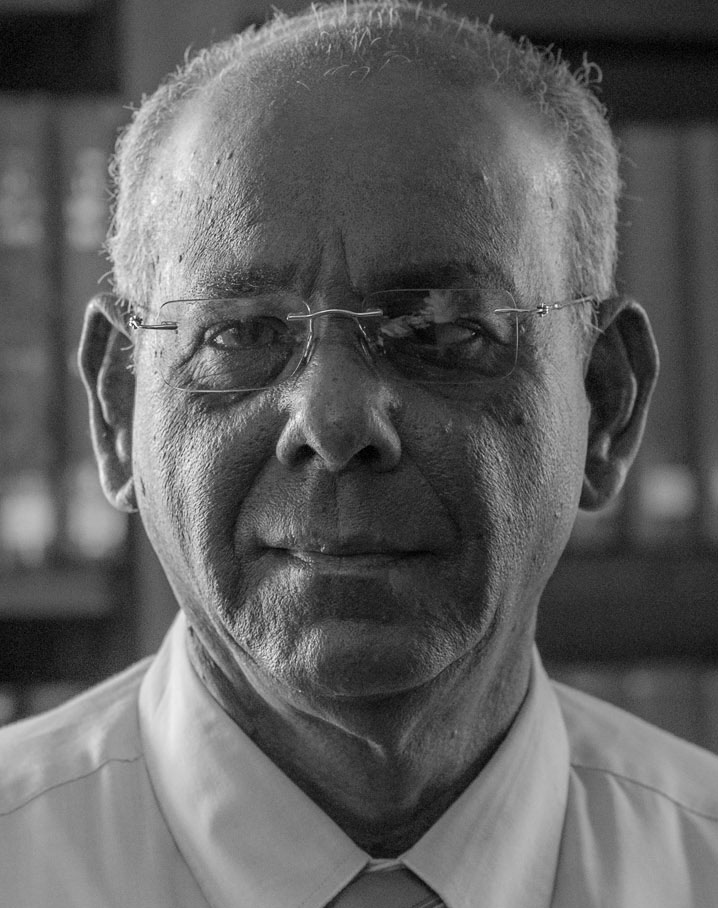Calling last Tuesday’s decision by the Caribbean Court of Justice (CCJ) upholding presidential term limits as a “monumental” victory for democracy, political analyst Ralph Ramkarran says it is now time for a third party as both the PPP and the PNCR have failed to deliver a government of national unity as they have promised at various times.
In his column in yesterday’s Sunday Stabroek, Ramkarran said with the current circumstances facing the PPP and the deteriorating economic conditions and one-seat majority confronting APNU+AFC, along with the pending establishment of an oil economy, they should have been persuaded by now that a high degree of political unity is requisite to safeguard the billions of US dollars likely to flow into the nation’s coffers from being dissipated.
“Having failed to establish inclusive governance, which both parties supported when in opposition, but failed to implement while in office, now is time for Guyanese to be offered a different kind of political party. Guyana needs a party with a programme of unity as a way out of the debilitating ethno-political controversies and insecurities which have dominated Guyana’s politics and have bred only suspicion, antagonism and political unilateralism. This third party can do so by recognizing the existence of the two major parties, the support they receive and seek as its fundamental goal to encourage these two parties to work together for the future of Guyana. Decades of political effort, including the mandate of the electorate in 2011, have all failed”, Ramkarran asserted.
A former two-term Speaker of the National Assembly, Ramkarran said that the third party, if it wins a majority or plurality, will take on the task of government in order to prevent a constitutional crisis. He pointed out that under the constitution, the party obtaining a majority or plurality must hold the presidency. Until the constitution is altered, he said that the party will be obliged to fulfill its constitutional mandate but would propose a re-examination of this and other provisions. The difference, he said, is that in accordance with its primary purpose, it will invite the other major parties to share in the government in accordance with their percentage of support.
“If a majority or plurality is not achieved, the third party will remain in opposition but will strongly advocate and agitate for the establishment of a unity government of the major parties. If the major parties recalcitrantly resist the call for unity, the third party will support the party that agrees to implement its policies of constitutional reform, leading to inclusive governance and for economic and social reform, including strong measures against poverty, crime and corruption”, Ramkarran asserted.
He added that the third party would not seek to replace the two major parties but would seek to make them winners, with both serving in government.
“The supporters of these parties will remain supporters and should not see it as a betrayal to support the third party, whose objective would be to ensure that there are no losers in elections. The third party must never fall victim to the lure of political office. It must have a higher purpose that resonates with the Guyanese people – unity. The unity that will be created is now a vital necessity. Statesmanship has failed Guyana so far. Electoral pressure must be brought to bear”, Ramkarran argued.
Ramkarran, a member of the PPP for nearly 50 years before quitting in a row over what he saw as the party’s weak position on corruption, also traced the party’s stance on the question of presidential term limits prior to Tuesday’s decision.
He said that during the lifetimes of former presidents Cheddi Jagan and Janet Jagan, the PPP twice, unanimously, decided to support a two-term presidential limit. A PPP delegation in 1995/6 forwarded to the Parliamentary Select Committee on Constitutional Reform that the constitution should be revised to provide for a two-term presidential limit. In 1999/2000, the same position was taken by the PPP to the Constitution Reform Commission.
He also noted that during the Ramotar presidency, Attorney General Anil Nandlall opposed the application by private citizen Cedric Richardson to deem as unconstitutional the amendment to the constitution that limited the presidential terms to two. He also pointed out that before Ramotar became president, he had publicly opposed the call for scrapping the two-term limit and has also now welcomed the recent decision of the CCJ to uphold the amendment.
Ramkarran added that the PPP, former President Bharrat Jagdeo and former Head of the Presidential Secretariat Dr. Roger Luncheon, all speaking for the PPP, had, at one time or another, expressed support for the two-term presidential limit. Furthermore Jagdeo had expressed a lack of interest in a third term. However, after the PPP lost the elections in 2015, and while the Richardson case was making its way through the Guyana Court of Appeal and the CCJ, Ramkarran said that the PPP and its spokespersons fell silent on the issue of presidential term limits.
He said that the decision by the CCJ was an “historic dose of democracy and justice”.
He added “The decision was a monumental victory for Guyana’s democracy, from whose people the horrifying threat of a potential life presidency has been lifted. At the same time, the PPP has suffered a major electoral blow as its best known, most popular and most experienced leader will not be able to lead it as a candidate at the 2020 elections”.










